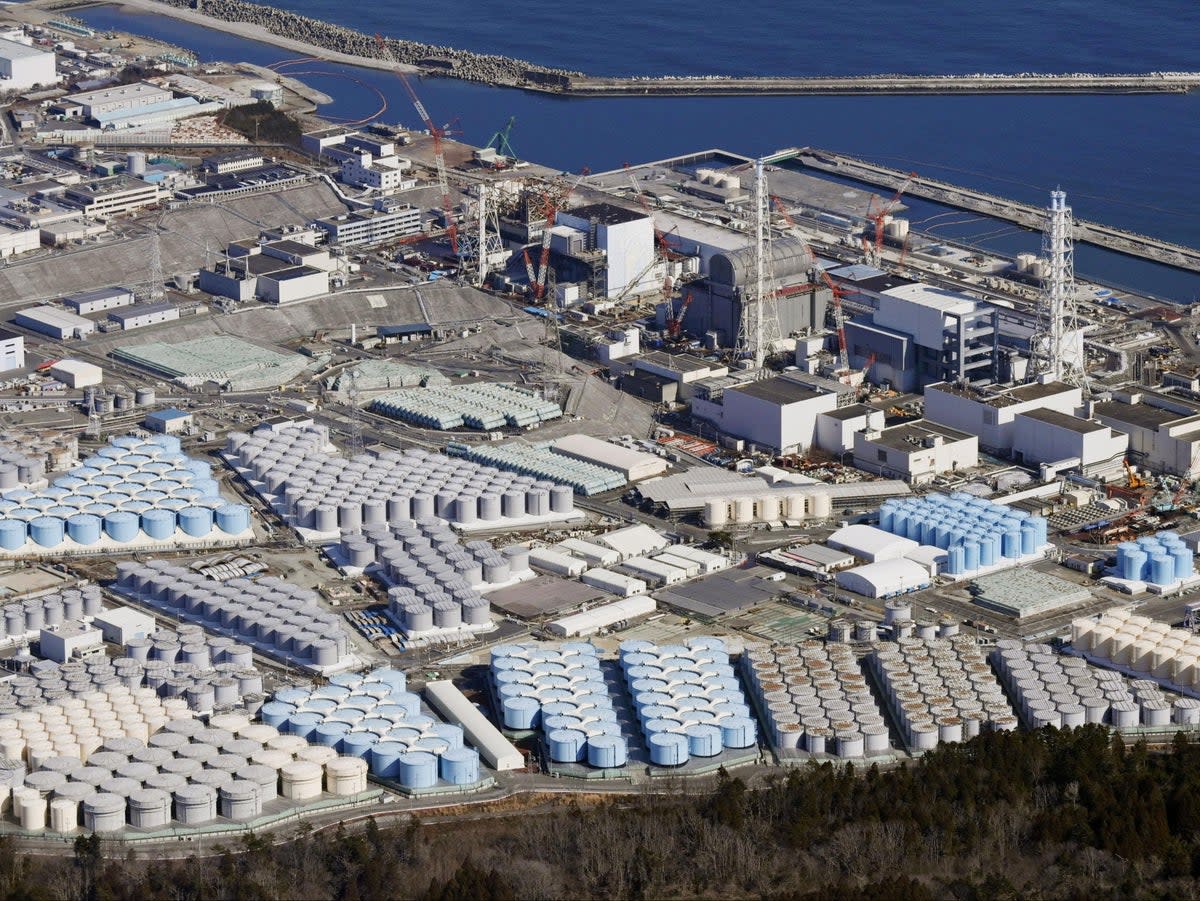‘Absolutely logical’ for Fukushima water release to attract attention, IAEA chief says amid criticism

The head of the International Atomic Energy Agency (IAEA) has said that it is “absolutely logical” that Japan’s plan to release treated radioactive water from its Fukushima nuclear plant is attracting attention.
IAEA chief Rafael Grossi has faced criticism over the UN nuclear watchdog’s approval of Japanese plans to release treated wastewater from the damaged plant.
Japan is set to release into the Pacific more than one million metric tons of water that was used to cool damaged reactors after the plant was hit by an earthquake and a tsunami in 2011.
“The issue at hand today has attracted a lot of interest, and this is absolutely logical because the actions and the way in which Japan will be addressing this... have important implications,” Mr Grossi said in a meeting with members of South Korea’s opposition Democratic Party on Sunday.
Mr Grossi said he understood concerns over the plan, but added that a review by the IAEA had found that it would be “in conformity with international safety standards” if executed properly.
During the meeting, Democratic Party representative Wi Seong-gon raised questions about the IAEA’s review, claiming that it had “shortcomings”.
“We deeply regret that the IAEA concluded Japan’s plan to discharge contaminated water from the Fukushima nuclear power plant meets international standards,” he said.
Democratic Party members claimed that, in its review, the IAEA had neglected long-term environmental and health impacts of the wastewater release and threatened to set a bad precedent by encouraging other countries to dispose of nuclear waste in a similar manner.
They called for Japan to scrap discharge plans and work with neighbouring countries to find safer ways to handle the wastewater, including a possible pursuit of long-term storage on land.
The party has also criticised the government of South Korean president Yoon Suk-yeol for putting people’s health at risk while trying to improve relations with Japan.
The South Korean government on Friday approved Japan’s plans and said the water would be within acceptable standards and would not meaningfully affect South Korean seas as long as the plant’s treatment systems work as designed.
However, Woo Won-shik, a Democratic Party politician, told Mr Grossi: “If you think [the treated wastewater] is safe, I wonder whether you would be willing to suggest the Japanese government use that water for drinking or for industrial and agricultural purposes, rather than dumping it in the sea.’’
The party said Mr Woo has been on a hunger strike for the past 14 days to protest against the Japanese discharge plans.
Scores of protesters also marched in Seoul on Saturday and demanded Japan scrap its plans. The protests had provided a tense backdrop to a meeting between Mr Grossi and South Korean foreign minister Park Jin, who called for the IAEA’s “active cooperation” in reassuring the South Korean public.
Additional reporting by agencies
